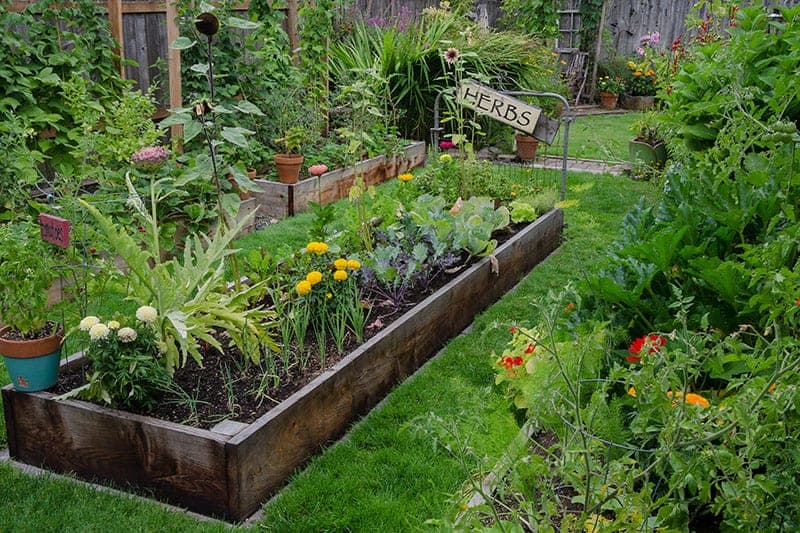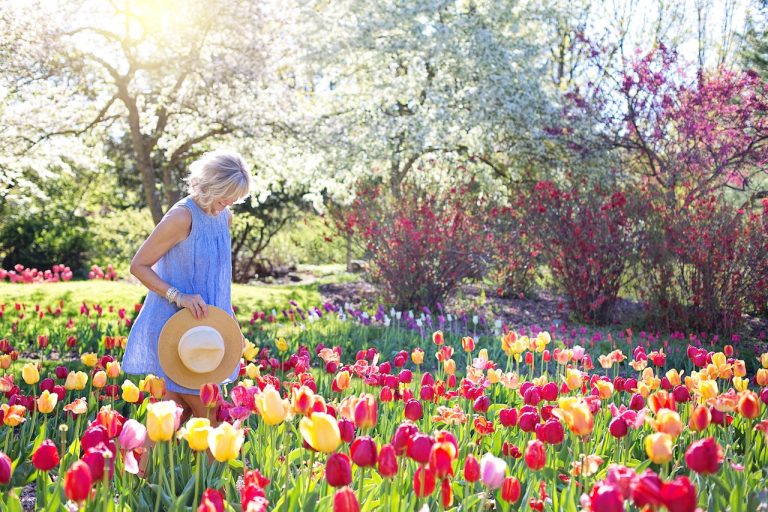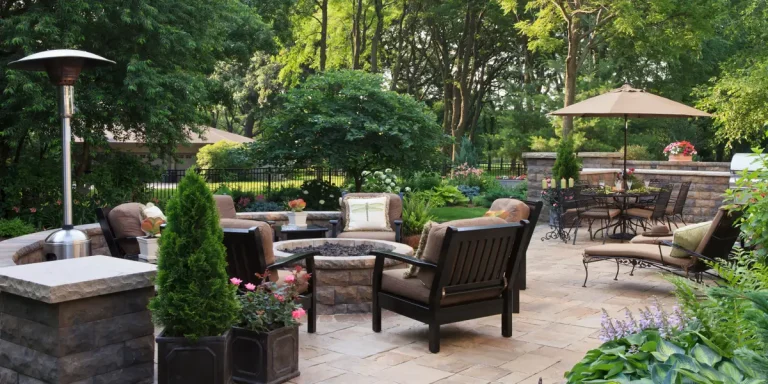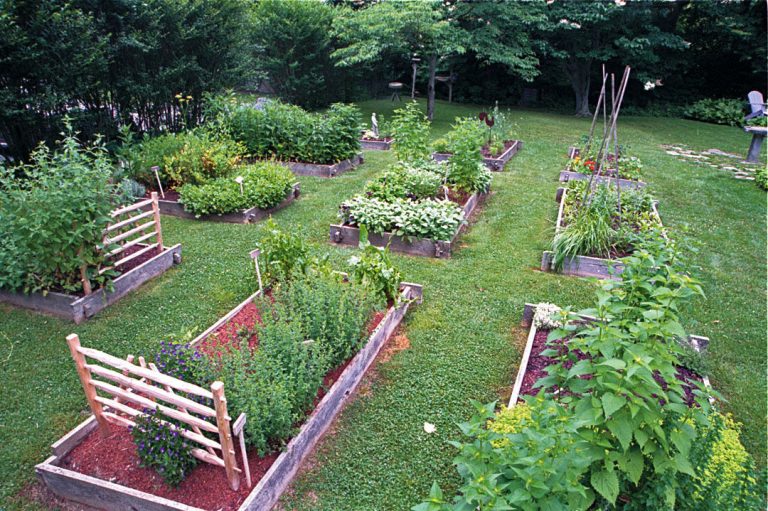In an age where sustainability and self-sufficiency are becoming increasingly important, gardening offers an excellent opportunity to save money while enhancing the beauty and functionality of your outdoor spaces. One of the simplest and most effective ways to do this is by incorporating herbs into your garden and outdoor areas. Not only are herbs incredibly versatile, but they also offer a wealth of benefits that extend beyond their culinary and medicinal uses. From reducing grocery bills to minimizing the need for chemical pesticides, herbs can be a cornerstone of a cost-saving outdoor strategy.
Herbs can transform a garden into a thriving ecosystem of flavors, fragrances, and textures, all while offering significant savings over time. The beauty of growing herbs is that they are often easy to cultivate, require minimal investment, and provide multiple returns. Let’s explore how using herbs in gardening and outdoor spaces can help you save money in ways you might not have considered.
Reducing Grocery Costs
One of the most immediate and obvious benefits of growing herbs in your garden is the reduction in grocery costs. Fresh herbs are a staple in many kitchens, used to enhance the flavors of everything from soups and stews to salads and desserts. However, buying fresh herbs at the grocery store can quickly add up, especially if you use them frequently in your cooking. A small packet of basil or parsley can cost several dollars, and these prices are often multiplied by the number of herbs you regularly use.
By growing your own herbs, you gain a constant supply of fresh ingredients at no extra cost beyond the initial investment in seeds or plants. A small herb garden can easily yield enough to satisfy even the most ambitious home cooks, with the added benefit of growing more than you could ever purchase from a store. With herbs like basil, rosemary, thyme, and cilantro, you’ll not only save money but also ensure that your herbs are fresh and free from any pesticides or chemicals.
Moreover, herbs tend to be very easy to grow in various climates and conditions. They can be grown in small spaces, even in containers on windowsills or balconies, making them accessible for those with limited garden space. With just a bit of attention and care, your herb garden can provide you with an abundant, year-round harvest that would otherwise cost you a small fortune at the store.
Minimizing the Need for Chemical Products
Another hidden cost in gardening comes from the reliance on chemical fertilizers, pesticides, and herbicides. These products can be expensive, and their environmental impact can be significant, particularly if overused. However, herbs offer a natural and often more effective way to manage these garden-related expenses.
Many herbs, such as lavender, mint, and basil, are natural insect repellents. When planted strategically in the garden, these herbs can help reduce the need for commercial pesticides. For example, basil has been shown to repel mosquitoes and flies, while mint can deter ants and other pests. By incorporating these herbs into your garden, you can minimize the need to purchase synthetic pesticides, thus saving money while keeping your garden more environmentally friendly.
In addition to their insect-repelling properties, herbs can also help improve soil health naturally. Instead of relying on chemical fertilizers, you can use organic methods like composting or planting nitrogen-fixing herbs such as clover. These natural approaches not only reduce the costs associated with buying chemical products but also contribute to a healthier and more sustainable garden.
Herbs as Natural Mulch and Soil Enhancers
Herbs can also play a role in improving the overall health and structure of your soil, which can lead to cost savings in the long run. Many herbs are excellent at attracting beneficial insects, like pollinators and predatory insects, that naturally control pests and help with plant pollination. By growing these herbs in your garden, you can reduce the need for costly interventions like chemical pesticides, which can be detrimental to the ecosystem.
Some herbs, such as comfrey and mint, can be used as a natural mulch. Mulching helps retain moisture in the soil, reduces weed growth, and improves the overall structure of the soil. These herbs can be chopped and used directly in your garden, providing a free and effective way to mulch your plants. Instead of purchasing bags of mulch from the store, you can recycle your own herb growth into a useful resource that benefits both your garden and your wallet.
Furthermore, certain herbs like oregano and thyme can be used as ground cover, naturally preventing soil erosion. They provide the same benefits as traditional ground cover plants but require far less maintenance, making them an affordable solution for large garden spaces.
Culinary Savings Beyond Fresh Herbs
When growing herbs, it’s not just the fresh leaves that can be used to your advantage. Many herbs can be preserved for future use, extending their value throughout the year. Drying, freezing, or even making your own herb-infused oils, vinegars, or butters are excellent ways to make the most of your harvest. By preserving your herbs, you avoid the need to purchase pre-packaged dried herbs, which can often cost several dollars per jar.
For example, basil can be dried and stored for use in soups, stews, and sauces during the winter months. Likewise, herbs like rosemary and thyme can be dried and used to season meats or added to homemade marinades. You can even create your own herb blends, like Italian seasoning or poultry rubs, and store them in airtight containers for future use. Not only does this save money on store-bought herbs and seasonings, but it also allows you to customize your flavors to suit your personal taste.
Herbs as Natural Medicinal Remedies
Beyond their culinary applications, herbs also have a long history of medicinal use. While it’s important to consult with a healthcare professional before using herbs for medicinal purposes, many common garden herbs such as chamomile, peppermint, and echinacea can be grown for their therapeutic properties. By cultivating these herbs, you can reduce the costs associated with purchasing over-the-counter medications or herbal supplements.
For instance, peppermint can be used to soothe digestive issues, while chamomile is known for its calming properties. Echinacea, often used to boost the immune system, can be harvested and dried for use in teas or tinctures. Growing your own medicinal herbs means you no longer have to buy expensive health products, and you gain the satisfaction of knowing exactly where your remedies come from.
Conclusion: A Smart and Sustainable Investment
Using herbs in your gardening and outdoor strategy is a simple yet powerful way to save money while enhancing your garden’s functionality. From reducing grocery bills and eliminating the need for expensive pesticides to providing natural solutions for soil health and erosion control, herbs offer a wealth of cost-saving benefits. Furthermore, by preserving your herbs for later use and exploring their medicinal potential, you extend their value even further.
Incorporating herbs into your outdoor spaces not only makes good financial sense but also promotes a more sustainable and eco-friendly approach to gardening. Whether you’re a seasoned gardener or just starting out, growing herbs is an investment that will continue to pay dividends for years to come.















